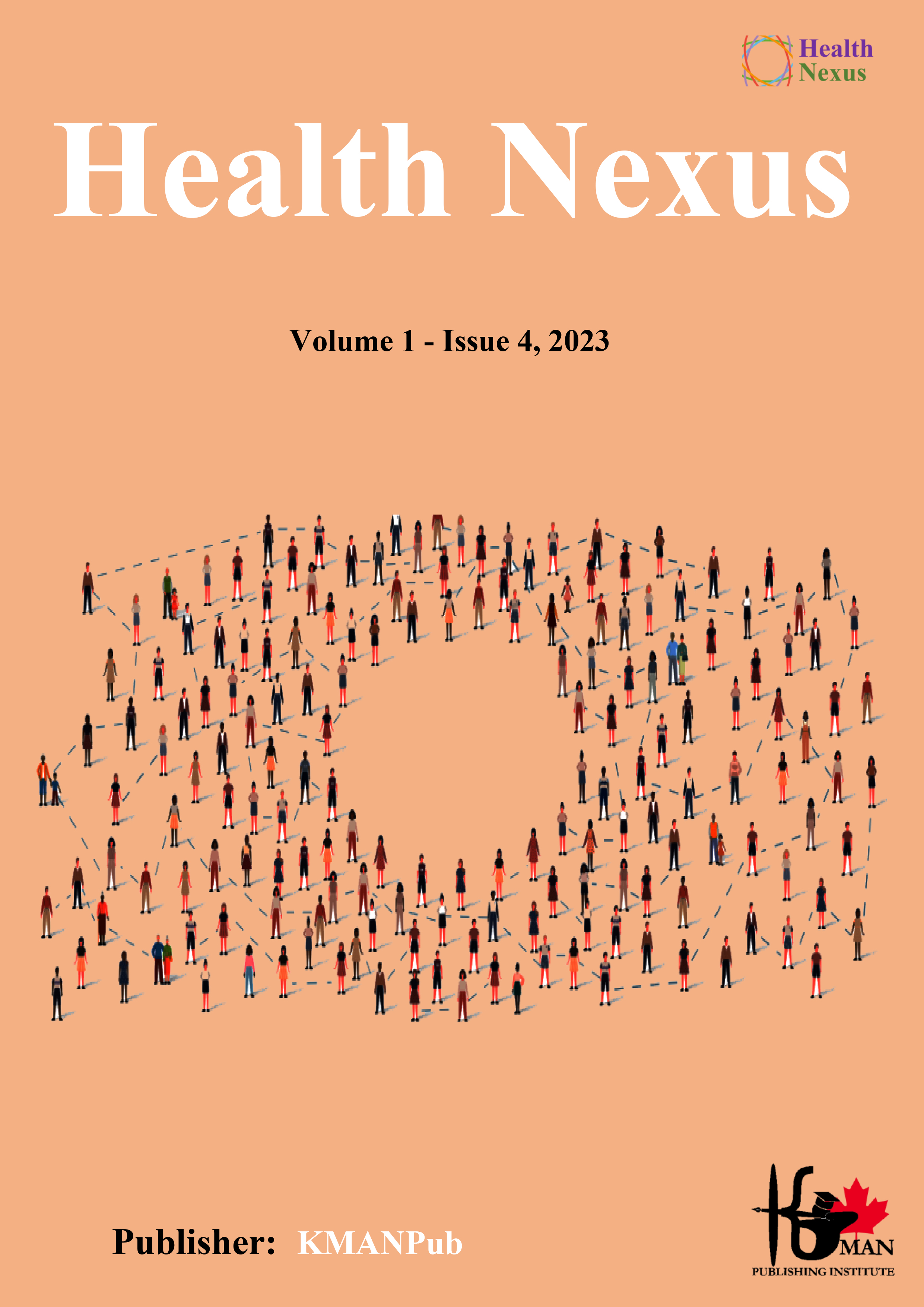The Effect of Whole Body Electromyostimulation Exercises on Improving Static Balance and Self-Efficacy in the Elderly
Keywords:
Electrical Muscle Stimulation, Balance Performance, Self-Efficacy, Elderly WomenAbstract
The primary aim of this research was to investigate the effect of electrical muscle stimulation (EMS) on the enhancement of static balance and self-efficacy in elderly individuals. This quasi-experimental study employed a pre-test and post-test design, encompassing two groups: an experimental group and a control group. The study involved elderly women aged between 65 and 70 years from Mashhad. Twenty participants from this age group were voluntarily and selectively recruited in accordance with the objectives of the study. They were then randomly divided into two groups: one receiving EMS training and the other serving as a control group. Data collection involved administering the Elderly Self-Efficacy Questionnaire and conducting static balance tests, including the use of a Biodex device and the Sharpened Romberg test, at both the pre-test and post-test phases. The EMS training lasted for 8 weeks, with two 20-minute sessions per week, and was divided into three phases: adaptation (2 weeks), initial exercises (2 weeks), and main exercises (4 weeks). The control group did not receive any intervention during this period. Post-test evaluations were conducted for both groups, similar to the pre-test. The Multivariate Analysis of Covariance (MANCOVA) was used to analyze changes both within and between groups, employing a significance threshold of less than five percent, with the analysis conducted using SPSS software, version 24. The findings indicated that EMS exercises significantly improved static balance in the elderly (p < 0.05). However, these exercises did not demonstrate a significant effect on the elderly's self-efficacy (p < 0.05). Given these results, coaches and caregivers are encouraged to consider electrical muscle stimulation as a viable, safe method to augment balance and independent mobility in elderly women.
Downloads
References
1. Irandoust K, Taheri M. The effect of strength training on quality of sleep and psychomotor performance in elderly males. Sleep and Hypnosis (Online). 2018;20(3):160-5. [DOI]
2. Eshaghi S, Morteza T, Khadijeh I, Knechtle B, Nikolaidis PT, Chtourou H. The effect of aerobic training and vitamin D supplements on the neurocognitive functions of elderly women with sleep disorders. Biological Rhythm Research. 2020;51(5):727-34. [DOI]
3. Fernandes VLS, Ribeiro DM, Fernandes LC, Menezes RLd. Postural changes versus balance control and falls in community-living older adults: a systematic review. Fisioterapia em movimento. 2018;31. [DOI]
4. Vancini RL, dos Santos Andrade M, de Lira CA, Theodoros Nikolaidis P, Knechtle B. Is It Possible to Age Healthy by Performing Ultra-endurance Exercises? International Journal of Sport Studies for Health. 2022;4(1):e122900. [DOI]
5. Bemben MG, Clary SR, Barnes C, Bemben DA, Knehans AW. Effects of Ballates, Step Aerobics, and Walking on Balance in Women Aged 50 to 75 Years: 2410: 142 9: 30 AM–10: 30 AM. Medicine & Science in Sports & Exercise. 2006;38(5):S445. [DOI]
6. Shojaei M DA. Motor Development. ed t, editor. Tehran:. Emam Hossien Publications; 2011. 233-8 p.
7. Taheri M, Esmaeili A, Irandoust K, Mirmoezzi M, Souissi A, Laher I, et al. Mental health, eating habits and physical activity levels of elite Iranian athletes during the COVID-19 pandemic. Science & Sports. 2023. [PMID: 37362084] [PMCID: PMC10243596] [DOI]
8. Kemmler W, Schliffka R, Mayhew JL, von Stengel S. Effects of whole-body electromyostimulation on resting metabolic rate, body composition, and maximum strength in postmenopausal women: the training and electrostimulation trial. The Journal of Strength & Conditioning Research. 2010;24(7):1880-7. [PMID: 20555279] [DOI]
9. Kemmler W, Teschler M, Weissenfels A, Bebenek M, Von Stengel S, Kohl M, et al. Whole-body electromyostimulation to fight sarcopenic obesity in community-dwelling older women at risk. Resultsof the randomized controlled FORMOsA-sarcopenic obesity study. Osteoporosis International. 2016;27:3261-70. [PMID: 27289534] [DOI]
10. Nishikawa Y, Takahashi T, Kawade S, Maeda N, Maruyama H, Hyngstrom A. The effect of electrical muscle stimulation on muscle mass and balance in older adults with dementia. Brain sciences. 2021;11(3):339. [PMID: 33800054] [PMCID: PMC8001595] [DOI]
11. Ghorbanian B, Saberi Y, Rasouli M. The effect of pilates training and electrical stimulation on motor and cognitive function of women with multiple sclerosis. The Neuroscience Journal of Shefaye Khatam. 2019;8(1):63-76. [DOI]
12. Seo B, Kim B, Singh K. The comparison of resistance and balance exercise on balance and falls efficacy in older females. European Geriatric Medicine. 2012;3(5):312-6. [DOI]
13. Roberts BL, Dolansky MA, Weber BA. Psychometric properties of the Task Self-Efficacy Scale for everyday activities in older adults. Research and theory for nursing practice. 2010;24(2):113-27. [PMID: 20549917] [DOI]
14. Golmohammadi B, Kashani V, Mokaberian M. The psychometric properties of Persian version of task self-efficacy scale for everyday activities in older adults. Journal of Clinical Psychology. 2015;7(2):87-100.
15. Pano-Rodriguez A, Beltran-Garrido JV, Hernandez-Gonzalez V, Reverter-Masia J. Effects of Whole body electromyostimulation on physical fitness and health in postmenopausal women: A study protocol for a randomized controlled trial. Frontiers in Public Health. 2020;8:313. [PMID: 32793536] [PMCID: PMC7391420] [DOI]
16. Parry SM, Berney S, Granger CL, Koopman R, El-Ansary D, Denehy L. Electrical muscle stimulation in the intensive care setting: a systematic review. Critical care medicine. 2013;41(10):2406-18. [PMID: 23921276] [DOI]
17. Rafiei AH, Sadeghi M, ESMAEILI H. The Effect of Electrical Muscle Stimulation System on Gait and Balance Patterns in Male Athletes. 2023.
18. Shouhani M, Jalilian M, Parsaei S, Modara F, Seidkhani H. The Effect of unilateral and bilateral electrical stimulation of the brain on improving the balance of the elderly. Iranian Journal of Ageing. 2020;15(3):312-23. [DOI]
19. Khazanin H, Daneshmandi H, Fakoor Rashid H. Effect of Selected Fall-proof Exercises on Fear of Falling and Quality of Life in the Elderly. Iranian Journal of Ageing. 2022;16(4):564-77. [DOI]
20. Shariatinia N, Letafatkar A, Shojaedin SS, Haddadnejad M. Evaluation of the Efficacy of a Comprehensive Spinal Muscle Training Protocol with and without Functional Electrical Stimulation in Elderly with Functional Kyphosis. Journal of Research in Rehabilitation Sciences. 2017;12(6):341-7.
Downloads
Additional Files
Published
Submitted
Revised
Accepted
License
Copyright (c) 2023 Maedeh Ahmadpour (Corresponding Author); Meysam Rezaei (Author)

This work is licensed under a Creative Commons Attribution-NonCommercial 4.0 International License.
















